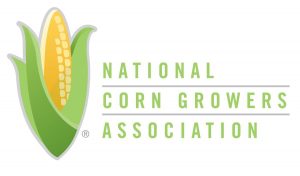 Pacific Ethanol, Inc. (PEI) has announced a strategic realignment to focus on specialty alcohols and essential ingredients, as well as its intent to change its corporate name.
Pacific Ethanol, Inc. (PEI) has announced a strategic realignment to focus on specialty alcohols and essential ingredients, as well as its intent to change its corporate name.
“Our company was founded to supply low carbon renewable fuel for the transportation market. While we will continue to participate in that market, transportation fuels are no longer our primary focus. Beginning with our acquisition of Illinois Corn Processing, LLC in 2017 and continuing with our ongoing expansion of specialty alcohol production begun earlier this year, we have been making investments to transition our business from focusing on fuels to focusing on specialty alcohols and essential ingredients used in consumer products, including alcoholic beverages, personal care products, sanitizers, cleaners and pharmaceuticals. We recently obtained ISO 9001 certification for our largest specialty alcohols production facility, and we are pursuing additional qualifications that will enable us to supply specialty alcohols used in a wider range of consumer products. We believe focusing on products for these markets aligns us with strong secular growth trends that will enable us to deliver greater and more consistent profitability for our shareholders,” stated Mike Kandris, Pacific Ethanol’s Chief Executive Officer.
Going forward, the company will focus on specialty alcohols and essential ingredients for four key markets: Health, Home & Beauty; Food & Beverage; Essential Ingredients; and Renewable Fuels. The company idled three of its western fuel-grade ethanol facilities in California and Idaho earlier this year, while continuing to operate its Columbia, Oregon distillery. As part of the company’s strategic realignment and new business focus, it intends to sell or re-purpose these assets.


 Ethanol stakeholder organizations submitted comments to the Environmental Protection Agency this week regarding the
Ethanol stakeholder organizations submitted comments to the Environmental Protection Agency this week regarding the 
 The
The  While Brazil is still abiding by the 90 day extension of the tariff-rate quota (TRQ) for ethanol
While Brazil is still abiding by the 90 day extension of the tariff-rate quota (TRQ) for ethanol  Democratic presidential candidate Joe Biden expressed support for “complete zero emissions by 2025” by transitioning away from oil during the
Democratic presidential candidate Joe Biden expressed support for “complete zero emissions by 2025” by transitioning away from oil during the  The
The  A group of 15 U.S. Senators representing oil refining states
A group of 15 U.S. Senators representing oil refining states  With more than 15 million cars registered in the state, California has almost twice as many vehicles on the road than any other state in the nation, which makes it the number one market for growing domestic ethanol demand.
With more than 15 million cars registered in the state, California has almost twice as many vehicles on the road than any other state in the nation, which makes it the number one market for growing domestic ethanol demand. 